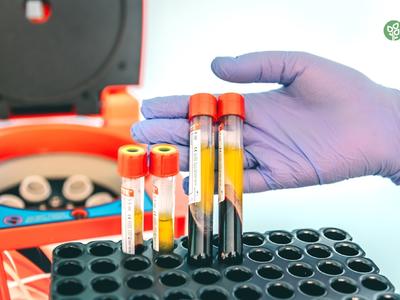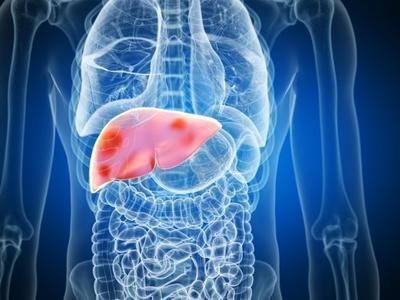The gut, the bad and the ugly
The human body is home to trillions of bacteria, viruses, parasites and fungus, collectively known as the microbiome.
While research on the microbiome is still in its infancy, studies have found that certain environments, foods and behaviours can influence gut health, for better or worse. This is a fact that wasn’t lost on the Ancient Greek physician Hippocrates who stated almost 2,500 years ago that “all disease begins in the gut”. Yet, amazingly, it is only in recent years that people have begun to take this truth seriously.
Tell me about this truth.
Well, the balance of the bacteria in your gut impacts on numerous aspects of your health that seemingly have nothing to do with digestion such as the immune system, cognitive health, emotional well-being, metabolic health, among other things.
As Neomed’s Functional Medicine Practitioner and Nutritionist, Tina Christoudias Spyrou, explains: “You are not only what you eat, but what you absorb. If your gut isn’t functioning properly you can be eating the best diet out there, but you won’t be absorbing the nutrients needed for your cells to produce the energy to do all the activities that your cells need to do.”
But hasn’t this always been the case?
Interestingly, no. While the microbiome is nothing new, gut problems are. “Go back 100 years and people had far more diverse microbiomes than today,” says Tina. “This is because people were eating organically-sourced foods and the soil was not so depleted by conventional farming, meaning people absorbed a lot of good nutrients and minerals from the soil as well.”
Another cause of the decrease in forms of good bacteria is a modern-day diet of fast food, processed food, refined white flour and sugars. These are the foods that feed bad bacteria. Thankfully, there are also ways to feed the good bacteria and one of the easiest ways to correct an imbalance is to change to a plant-based diet.
“This doesn’t necessarily mean going vegetarian or vegan,” says Tina, “but predominantly you want the food on your plate to come from plants and vegetables. Good bacteria depend on the fibre from plant-based food.”
Another easy fix is to eat the colours of the rainbow, every single day, which all helps to feed the microbiome. Smoothies are an excellent way of getting the nutrient density you need with a smaller quantity intake and our Wellness Coach, Dina, will be sharing a few of her favourite nutrient-packed recipes in the coming weeks.
But is gut health really so important?
The short answer to this is ‘yes’.
Some bacteria fight inflammation, while others promote it, and when the gut works as it should, these two types keep each other in check. However, when that delicate balance gets skewed, pathogenic bacteria can take over, spreading inflammation to other parts of the body. Studies in both animals and humans have linked some bacteria to lower immune function, others to a greater risk of asthma and allergies as well as chronic illnesses like diabetes, heart disease and autoimmune conditions, such as Hashimoto’s and multiple sclerosis.
Gut health has also been linked to anxiety and depression, and to neurological conditions like schizophrenia and dementia. “Our gut is our second brain and 70% of our neurotransmitters are produced in our gut,” explains Tina. “A lot of people we see with anxiety and depression usually have gut issues. So, it’s very important that your gut health is good so that your mind can work properly as well.” Studies have also shown that the makeup of gut bacteria varies between lean and overweight people, suggesting it may play a role in causing obesity.
What is a leaky gut?
Ah, this is a condition that’s more common than you might like to think.
One of the functions of the intestine, besides absorbing and digesting our food, is to protect whatever is inside the gut from our blood and other organs outside of it. This protection comes from the lining of the gut. However, stress and the chemicals we breathe in on a daily basis, as well as bad diets, can lead to a deterioration of this lining, meaning that what’s in the gut starts to go outside of it – and waiting outside the gut is the immune system.
Not recognizing whatever it is that’s leaking from the gut, the immune system starts to attack it. “When this happens day after day, week after week, year after year, your immune system can definitely get confused and start attacking your own tissues,” explains Tina. “This is why we are seeing such a rise in autoimmune disease.”
Brain fog, digestive issues, nutritional deficiencies, fatigue, arthritic pain or frequent headaches are all signs of a leaky gut.
But can a change in diet really help?
We think so, but you don’t have to take our word for it.
For many years, the American physician Dr Terry Wahls turned to drugs or surgical procedures when treating her patients – until she was diagnosed with MS in 2000. Within three years, her back and stomach muscles had weakened to the point where she needed a reclined wheelchair and, after showing no response to conventional medical treatments, she began to fear she would be bedridden for the rest of her life.
It was then that Dr Wahls began researching autoimmune diseases in more depth, after which she decided to get her vitamins, minerals, antioxidants, and essential fatty acids from the food she ate rather than the pills and supplements available at the pharmacy. Within a year, Dr Wahls was out of her wheelchair and competing in a triathlon. She now recommends eating eight cups of vegetables a day, along with fermented foods such as coconut water kefir or sauerkraut.
To many, Dr Wahls’ rehabilitation is nothing short of a miracle, but as far as Tina is concerned it’s an attainable miracle.
“My expertise is in thyroid and hormonal health and with these kinds of autoimmune issues, seven out of ten patients – just by changing their diet – see dramatic results in how they are feeling,” she says. “For the other three out of ten, we have to dig a little deeper to see what other root causes there might be – such as over chemical toxicity or overgrowths of some sort – but in general this is a great statistic. Seven out of ten people can see symptom relief just by changing their diet.”
For Tina, it is the fast pace of life and the consequent need for a quick fix that has become the greatest enemy of good gut health. “People have been ignoring what their bodies have been trying to tell them for a very long time,” she explains. “So, if you have a headache, you pop a pill and move on. Obviously, this is not the way the body is meant to function.”
Warning signs of failing gut health
Bloating, gas, diarrhoea, stomach pain and nausea are all pretty direct signs that something in the gut isn’t working as it should be. These imbalances often fix themselves after a short time, but if they become chronic, they may require medical diagnosis and treatment.
Seeing undigested food in your stools, or if your stool is floating, is also a major sign that your gut and liver are not functioning normally. Arthritic pain, low energy, hair loss and skin issues like acne or psoriasis are all related to the gut. Chronic headaches can also mean the liver is sluggish and not doing a very good job of detoxifying.
Can my gut be fixed?
The good news is, yes, it can. The even better news is that 90% of the work happens in your own home.
“At Neomed we assess the problem, fix your diet and any supplements needed to help with digestion, and we give you the tools that enable you to go home and do the work,” says Tina. “But remember, plants are your friend. Make your plates as colourful as the brightest rainbow.”
Is gut health related to chronic issues like Lyme disease?
The answer to that is an astounding ‘yes!’
In any chronic disease, the gut plays a vital role in how bad or how good a patient feels with various symptoms. For example, a Lyme patient who goes to the toilet regularly, who has no bloating or diarrhoea, constipation or stomach pain, and has a good diet, usually has fewer symptoms, like pain or fatigue, than a Lyme patient who has many gastrointestinal issues.
“Many Lyme patients, more often than not, typically have bacterial, fungal, or parasitic overgrowths within the gut,” explains Tina. “Once these are addressed, the gut function can be restored and many patients start to experience symptom relief. “Therefore, addressing any underlying gut issues becomes paramount when addressing a chronic illness such as Lyme disease.”







